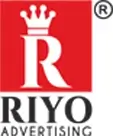
Book Classified/Display Nclt ads in Newspaper At Low Rate
Book NCLT Advertisements In Newspaper Online | NCLT Ad Rates 2023 | NCLT Advertisements Format
Riyo Advertising: 20 Years Crafting Success
ADVERTISING AGENCY FOR ALL LEADING NEWSPAPERS & MAGAZINES FOR ALL OVER INDIA & ABROAD
Book Education Ads in Newspaper , Education Ads RATES 2023. Book Education Advertisements @ LOWEST RATES! Education Advertisements Samples. Book Education ad
NCLT Advertisements
National Company Law Tribunal (NCLT) was established under the 2013 Companies Act. The NCLT is a for profit organization settling disputes related to corporate law like dispute and mergers and acquisitions, and other matters related to corporate governance. The NCLT also plays a vital role in the corporate world by issuing advertisements for various purposes.
NCLT advertisements are a crucial constituent of the legal process. These advertisements are distributed to inform the public about legal proceedings and other matters related to corporate law. The NCLT issues advertisements for a diversity of purposes, including the appointment of liquidators, public declarations regarding bankruptcy proceedings, and notices related to shareholder meetings.
NCLT advertisements are also used to notify shareholders about upcoming meetings. Shareholders of a company are required to be present annual general meetings and other important meetings. The NCLT distributes advertisements to inform shareholders about the date, time, and location of these meetings.
NCLT advertisements are an vital constituent of the judicial process in India. These advertisements inform the public about legal proceedings and other matters related to corporate law. The NCLT issues advertisements for various purposes, including the appointment of liquidators, public announcements regarding bankruptcy proceedings, and notices related to shareholder meetings. These advertisements play a crucial role in the corporate world by providing stakeholders with important information about legal proceedings and other matters related to corporate governance.
Ad Rates of NCLT Ads
NCLT (National Company Law Tribunal) ad rates may depending on the type of ad, the size of the ad, the newspaper in which the ad is to be printed, and the location of the newspaper. Generally, NCLT ads are charged on a per-line basis or a per-square-centimeter basis. The rates also differ founded on the number of insertions or the frequency of publication.
It is significant to note that NCLT ads are printed in obedience with legal requirements and guidelines set by the NCLT, and therefore, the rates for such ads may be higher than routine newspaper ads.
Riyo advertising agency accepts all types of advertisement for NCLT ads in Newspaper. Call us for Special packages & discounted ad rates on 022 6770 4000 / 022 67706500 / 9821984000 or email us on info@riyoadvertising.com
Types of NCLT Ads
NCLT (National Company Law Tribunal) ads are printed in newspapers to inform the public about various legal proceedings and matters related to corporate law. Here are some of the common kinds of NCLT ads that are printed in newspapers:
-
Public notices:
These are advertisements that notify the public about legal proceedings related to corporate law. These notices may relate to bankruptcy proceedings, insolvency, winding-up, or other legal actions started by the NCLT. They comprise detailed information about the proceedings, counting dates, times, and sites of hearings, deadlines for submitting claims, and contact information for further inquiries.
-
Notices of meetings:
These ads are printed to inform shareholders and other interested parties about important meetings related to corporate law. These meetings may comprise annual general meetings, extraordinary general meetings, and creditors' meetings. These ads includes the detail information about date, time and meeting details and other important details.
-
Notice of mergers and acquisitions:
When two or more companies acquire one another, the advertisement should publish to notify public about the company transaction.. These ads contain information about the companies tangled, the terms of the transaction, and any other pertinent details.
-
Notice of appointment of liquidators:
When a company is declared bankruptcy, the NCLT appoints a bankrupt to oversee the liquidation process. An advertisement is issued to inform the public about the nomination of the liquidator, and this ad contains information about the liquidator's errands and the timeline for the liquidation process.
-
Notice of change of name:
When a company alters its name, an advertisement is distributes to inform the public about the change. This advertisement comprises information about the new name of the company and the reasons for the change.
-
Notice of winding up:
When a company is winding up, an advertisement is issued to notify the public about the process. This advertisement comprises information about the liquidator chosen, the timeline for the winding-up process, and the steps that will be taken to allocate the company's assets among the creditors.
In conclusion, NCLT advertisements printed in newspapers are an important means of informing the public about various legal proceedings and matters related to corporate law. They provide shareholders with important information and help to ensure transparency and answerability in corporate governance.
Booking NCLT Ads in Newspapers
Booking an NCLT ad in a newspaper can be complete in a few simple steps. Here's how to do it:
- Govern which newspaper(s) you want to print the NCLT ad in. It is suggested to print the ad in a widely circulated newspaper to ensure maximum visibility.
- Prepare the ad copy as per the rules provided by the NCLT. These rules may comprise specific information to be included in the ad, font size, and other formatting requirements.
- Contact the advertising section of the selected newspaper to book the NCLT ad. The advertising department will guide you through the process of booking the ad and deliver you with a rate card that itemizes the cost of publishing the ad.
- Provide the ad copy and other required particulars to the advertising department. This ad contain the date on ad should be printed, the size of the ad and mode of payment.
- Make the payment for the ad as per the rate card provided by the newspaper. The recompence can be completed through various modes such as credit/debit card, net banking, or cheque.
- Once the payment is processed, the newspaper will print the NCLT ad on the quantified date(s) and provide a copy of the printed ad as proof of publication.
It is important to safeguard that the ad copy adheres to the guidelines provided by the NCLT to avoid any mistakes or omissions. Additionally, it is sensible to book the ad well in advance to avoid last-minute rush and ensure timely publication.
Some frequently asked questions related to Booking NCLT Ads in Newspapers
The process of booking an NCLT Ad in a newspaper includes selecting the newspaper, choosing the kind of ad, specifying the ad size and date of publication, uploading the ad copy, and making the payment for the ad.
The different types of NCLT Ads that can be printed in newspapers include public notice, notice of meeting, notice of winding up, notice of liquidation, notice of resolution, notice of adjudication, etc.
The documents required for booking an NCLT Ad in a newspaper comprise the order copy from the NCLT, the copy of the resolution passed by the company, and the copy of the memorandum and articles of association.
The cost of publishing an NCLT Ad in Newspaper may differ contingent on the kind of ad, size of the ad, newspaper detail in which the ad is published and city where newspaper is published.
Yes, an NCLT Ad can be printed in multiple newspapers across different locations. This can support in reaching a wider audience and ensuring compliance with legal requirements.
We deliver an online platform where advertisers can track the publication of their ads by entering the reference number or booking ID. Additionally, the newspaper may also provide a physical copy of the printed ad as proof of publication.
You can call us any time on +91 9821454000 or E-mail us on info@riyoadvertising.com or you can request a call back.
Your one-stop shop for all your advertising needs.
Smita Patil
Riyo Advertising managed to publish our Company's Classified Ad in Maharashtra Times and in Global Times. Honestly, we got a good response from the public. They have published our ad in an attractive way and it was reasonably charged too.
Poonam Kalyani
Riyo Advertising gave us the best out of best information. We are into Education Industry. They gave us wide idea about Advertising in Education Category of various Newspaper Publications.We will prefer and recommend them for mass advertisements.
Nikita Rajkhare
The experience of booking and analyzing advertisement online was fantastic. "Your service is the best" I was in a very urgent need to do this and had very little time to spare, and your service saved me. Thank you
Rodgrigues Fernandis
Riyo is an awesome promotional Advertising agency in Mumbai. They are really cool people, great creative work and are helping us in Advertising our Education Institution. We are about to launch it in the next month and we are happy with their assistance.
Ashok Shah
Riyo Advertising bring to the table the thinking and discipline of TV Advertising. We are in tie up with them for publishing our commercial Ad's in all Local TV Channels. Good service to be appreciated.
Abhishek Mulchandani
Paying Riyo Advertising is really worthy. In Mumbai Mirror, we have published our Classified Ad via them and it was a perfect service. We got a good response and we are contented.
Kirti Mane
Honestly speaking we are attracted by the discussion with Riyo Advertising. We are having our conversation with them for our Media Ad in Mumbai and Pune.
Aakansha Bansal
Attractive service from Riyo Advertising. For our Official Classified Ad, we published an Advertisement in Times of India and Mumbai Samachar. We are satisfied with their catchy idea and with their charges.
Karthik Balakrishnan
I am really very pleased with the work of Riyo Guys.they are very professional and experienced people. I wanted to do a Press ad, the ad is under development, their approach has been very detailed, costing quite good and the ad is attractive..Very Happy!!!
Suhash Ajmera
Thanks for taking your time on our project. It was good advice to slow down and get it right. The extra time we needed just like you said they would, and the end result is a better advertisement and a better strategy. Thank you very much for slowing things down.
Shaukat Shaikh
We got a good and innovative response from Riyo. We had published Recruitment ad in Time of India. They are very creative, young chaps and designed our Official Ad. Felt highly reasonable with their charges and their service is highly recommended
Kavya Shukla
True professionals from Riyo Advertising they had listened to what we wanted and produced more I had got details about media Advertising they are very responsive and quick getting the details and procedure we needed. Good job from them
Rahul Srinivasan
I released an ad for Renting out my flat. The facility of knowing the cost as and when we type the ad, is a useful feature. I was able to try out different phrases and was able to keep the cost within my budget.
Kailash Junjunwala( Siddhi vinayak Classes )
I had booked my Education institute ad in Mirror.Thank you for everything, the response I got was amazing. Appreciate the support. Keep up the good work.




